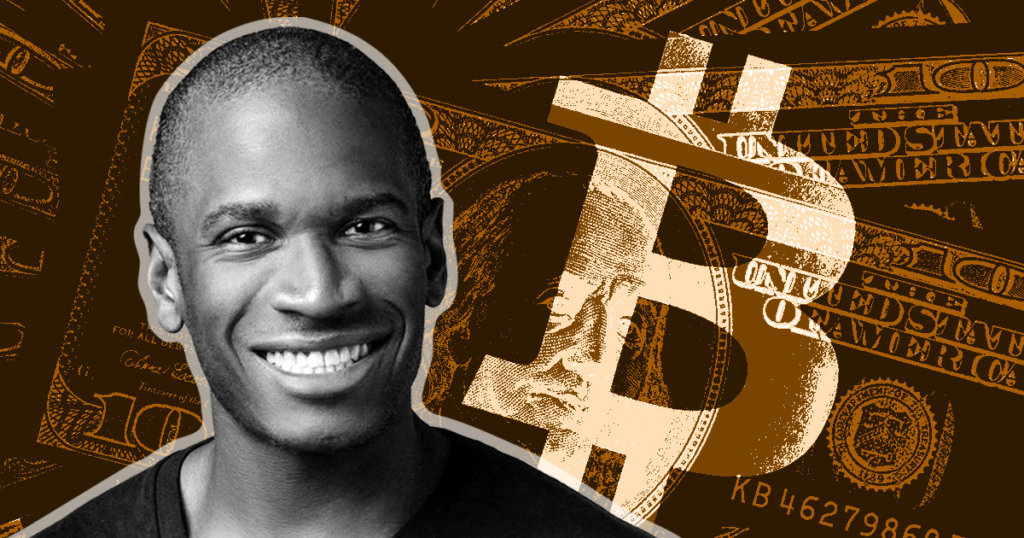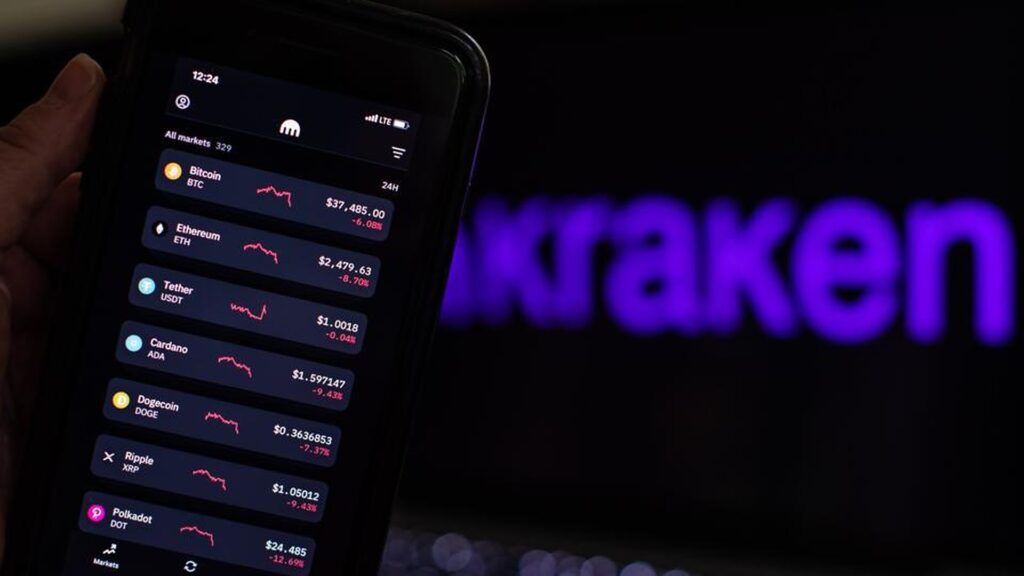Cybercriminals using the Wormhole Network exploiter have moved additional funds around their networks, PeckShield reported.
The hackers stole roughly $325 million in 2022 and moved roughly $150 million in stolen digital assets in January. According to PeckShield, the group shuffled more of the funding on Sunday.
#PeckShieldAlert The Wormhole Network Exploiter 0x629e supplied $46M worth of cryptos, including 24.4k $wstETH ($41.4M) & 3k $rETH (~$5M), to MakerDAO for 16.6M $DAI & used them to buy 9.75k $ETH ($ETH at $1,537) & 1k $stETH ($ETH at $1,543), then wrapped them for ~9.7k $wstETH pic.twitter.com/BRfygHgpit
— PeckShieldAlert (@PeckShieldAlert) February 12, 2023
The report outlined the funds as they moved across channels. The suspect converted $46 million in assets to 16.6 million MakerDAO’s DAI native tokens. Converted assets included 24,400 Lido-wrapped staked Ether (wstETH) valued at $41.4 million, and a further 3,000 Rocket Pool ETH totalling $5 million.
The Wormhole hacker later bought 9,752.24 ETH for $1,537 each, totalling $14.9 million.
It also bought 1,036 staked ETH (stETH) valued at $1.5 million, wrapping the purchase for 9,700 wstETH, the report concluded.
PeckShield, a suspicious accounts watchdog, issued further reports on similar activities. In December last year, unknown users reactivated an inactive crypto wallet after four years to transfer a huge 22,982 ETH sum to a new address.
It found transfers from Poloniex and Genesis valued at 9,878 ETH and 13,103 ETH, respectively. Transactions took place after Ethereum peaked at $1,200 per coin last year.
Brazil’s oldest bank has launched payment systems for taxpayers to use cryptocurrency for annual filings, reports found this week.
The Banco do Brasil said in an 11 February statement that it was “possible” for taxpayers to pay their bills with cryptocurrencies. Bitfy, a Brazilian crypto platform, has worked jointly with the bank to facilitate the programme as its collection partner.
Temos a honra de anunciar que #Bitfy e @bancodobrasil se juntam para disponibilizar pela 1ª vez na história da economia mundial, o pagamento de #Impostos via #Criptomoedas
— Bitfy (@bitfyapp) February 10, 2023
Acesse nosso Blog e entenda melhor nossa nova feature de Pagamento de Impostos:https://t.co/UIAe5J3V0N pic.twitter.com/MqPXoCQm5k
The bank added that using cryptocurrencies could provide customers convenience and “expand” digital asset ecosystems nationally. It could also offer the stability of Banco do Brasil’s strong reputation and consumer protections.
Bitfy founder and chief executive Lucas Schoch said in a statement: “Now that we have sealed this strategic partnership, Bitfy and Banco do Brasil, we will drive the adoption of the new DeFi economy, developing the necessary infrastructure to increase autonomy and democratize the use and access to the digital asset ecosystem throughout Brazil.”
He added that the “new digital economy is a catalyst for a future full of advantages.”
How Does it Work?
Bitfy’s statement continued that people using cryptocurrencies to pay taxes could use the streamlined process complete with tax data and amount of reals, the nation’s fiat currency. The new platform would convert the amount owed to cryptocurrency to pay the fee.
Users can scan barcodes to pay the tax bill, similar to a “boleto,” or ticket payment. Brazilian municipalities such as Rio de Janeiro have already rolled out similar programmes in October last year.
Former president Jair Bolsonaro passed regulatory frameworks to legalise cryptocurrencies as national payment, with the law set to pass later in June.
Additional companies have begun exploring cryptocurrency integrations across their respective economies. Nations and blocs such as El Salvador, China, Fiji, Tonga, and others have begun trialling cryptocurrencies as accepted forms of payment.
The European Union, the United Kingdom, the United States, Montenegro, Japan, and many nations have begun outlining plans to unveil central bank digital currencies.
Paxos Trust Co, a stablecoin issuer and producer, faces a major lawsuit over alleged violations of laws to protect investors.
The Wall Street Journal (WSJ) reported the United States Securities and Exchange Commission (SEC) had launched the suit due to Binance USD (BUSD). Paxos backed the stablecoin with USD after inking a deal with the world’s largest exchange by volume in September 2019.
BUSD is the third largest stablecoin by market capitalisation at $16 billion USD.
The SEC slapped Paxos with a Wells notice signalling imminent enforcement action, the WSJ reported, citing people familiar with the matter.
The sources added the notice accuses BUSD of functioning as an unregistered security. The news comes after the New York Department of Financial Services (NYDFS) launched investigations on Paxos. Reports have not provided clarity on the investigations.
The news comes after the SEC hit cryptocurrency exchange giant Kraken with a similar investigation, citing alleged unregistered securities sales.
SEC chairman Gary Gensler ordered the platform to register with it as it conducted crypto transactions.
Kraken chief executive Dave Ripley told Reuters that Kraken had no plans to register with the SEC or delist any crypto offerings targeted by the SEC as securities.
Despite this, Kraken agreed to stop its crypto-staking programme in its $30 million USD settlement with the regulator, sources familiar with the industry told reporters.
Cryptocurrency trading platform Kraken has been ordered to halt its crypto staking-as-a-service platform “immediately” for US users, the United States Securities and Exchange Commission (SEC) has revealed.
The move comes after the platform paid $30 million to the SEC after the latter charged Kraken with providing unregistered securities.
Both of Kraken’s registered companies, Payward Ventures Inc and Payward Trading Ltd, would halt the programmes offered to public users since 2019, according to the SEC in a statement.
The regulator continued: “The complaint alleges that Kraken touts that its staking investment program offers an easy-to-use platform and benefits that derive from Kraken’s efforts on behalf of investors, including Kraken’s strategies to obtain regular investment returns and payouts.”
Kraken Response
The cryptocurrency platform responded in a blog post it would unstake assets staked by US customers save for those conducted in Ether. The company will not take measures on Ethereum-based stakes until after the network conducts its Shanghai upgrade.
It explained that staking services for non-US clients would “continue uninterrupted.”
The SEC added that Kraken’s staking mechanism revealed “risks” for investors using the tool, offering them “very little protection.”
Staking involves proof-of-stake blockchain networks that use decentralised validators. These provide cryptocurrencies as collateral as proof it will use the networks honestly, in return for token rewards.
SEC chair Gary Gensler explained: “Whether it’s through staking-as-a-service, lending, or other means, crypto intermediaries, when offering investment contracts in exchange for investors’ tokens, need to provide the proper disclosures and safeguards required by our securities laws.”
He concluded that the organisation’s actions would “make clear” to cryptocurrency markets that staking-as-a-service providers will “register and provide full, fair and truthful disclosure and investor protection.”
A prominent cryptocurrency investor has stated that Bitcoin (BTC) and rising altcoins are sound purchases.
Arthur Hayes wrote in a blog post that his previous risk-averse position on cryptocurrency investments had changed and he had become more bullish on some BTC purchases.
JAYPOW is up to speak today. He ain’t ready to stop the bull market. “Be Present” is my essay on why I have started to buy $BTC. Yaaaarrrr!!!!https://t.co/SzwusFRSI5 pic.twitter.com/2iZtuAFU19
— Arthur Hayes (@CryptoHayes) February 7, 2023
He stated that ongoing economic issues at the United States Federal Reserve forced him to avoid risky assets. Federal rate hikes aimed at slowing rampant inflation have triggered rises in cryptocurrency investment activity, he stated.
The BitMEX co-founder said in his post,
“My concerns about this potential outcome, which I handicapped would most likely happen later in 2023, has led me to keep my spare capital in money market funds and short-dated U.S. Treasury bills. As such, the portion of my liquid capital that I intend to eventually use to purchase crypto is missing out on the current monster rally we’re seeing off of the local lows. Bitcoin has rallied close to 50% from the $16,000 lows we saw around the FTX fallout.”
He also predicted that Bitcoin would see additional rises in valuation after 40 percent climb in January.
Liquidity Returns, Debt Ceiling Looms
Despite this, Federal Reserve measures come amid quantitative tightening to remove liquidity from US markets and diminished risk assets. However, the first fiscal half of 2023 will see liquidity return to markets to avoid triggering a debt ceiling crisis, which lawmakers will vote on in the summer, he explained
Treasury General Account (TGA) will eliminate roughly $500 billion USD in cash, which will effectively counteract the Fed’s $100 billion monthly liquidity removals.
He continued: “The TGA will be exhausted sometime in the middle of the year. Immediately following its exhaustion, there will be a political circus in the U.S. around raising the debt limit. Given that the Western-led fiat financial system would collapse overnight if the US government decided to forgo raising the debt ceiling and instead defaulted on the assets that underpin said system, it’s safe to assume the debt ceiling will be raised.”
Time to (Macro) Unwind
Hayes added that he would mostly invest in USD and Bitcoin but would require sufficient timing.
He added: “I’ll deploy over the coming days. I wish my size actually mattered, but it doesn’t — so please don’t think that when this happens, it will have any discernible effect on the price of the orange coin.”
Additionally, altcoins offered opportunities, relying on optimal timing to receive the highest returns.
He concluded: “The key to shitcoining is understanding they go up and down in waves. First, the crypto reserve assets rally — that is, Bitcoin and Ether. The rally in these stalwarts eventually stalls, and then prices fall slightly […] “At the same time, the shitcoin complex stages an aggressive rally. Then shitcoins rediscover gravity, and interest shifts back to Bitcoin and Ether. And this stair-stepping process continues until the secular bull market ends.”
The news comes amid a tumultuous February as Bitcoin surged after the US revealed strong jobs data and modest growth for 2022.
The digital coin skyrocketed past $23,000, indicating the first massive rally since 2020. It also retained its value of around $23,000 amid several interest rate hikes at 25 base-points interest each.
Cryptocurrency trading platform Changelly has launched a massive update to its decentralised finance (DeFi) Swap decentralised exchange (DEX). The changes aim to increase the number of benefits of using DeFi platforms, namely to optimise transaction costs and processing speeds.
With the latest changes, Changelly users can swap “thousands of tokens” across Ethereum, Polygon, Avalance, BNB Smart Chain, Fantom, and Optimism networks.
The new DeFi Swap will function as a liquidity aggregator via its smart router. This will search for optimal swap executions across liquidity providers and suggest measures to conduct transactions.
Users will have access to benefits such as over 3,500 DeFi tokens, beneficial rates, and growing liquidity sources with over 100 connected DEXs.
Still plenty of time left to participate in the event and potentially win some USDT 🚀🎁 https://t.co/vdjESPhG5b
— Changelly (@Changelly_team) February 9, 2023
To promote the update, the crypto platform will offer prizes of a share of 100 Tether (USDT) by completing DeFi swaps by 13 February. The user with the largest transaction by volume will also receive 100 USDT.
The news comes after Changelly introduced its DeFi Swap in September last year to optimise cryptocurrency transactions. The initiative, powered by Yet Another DeFi (YAD), uses its Smart Router options to provide optimised rates.
Reports have found that Alameda Research-linked wallets reactivated this week to transfer millions in FTX native tokens to several addresses.
Despite filing for Chapter 11 bankruptcy in mid-November, Alameda’s brokenfish.eth wallet address sent roughly $2 million USD in FTT tokens. An unknown source sent the funds from its BentoBox smart contract.
The smart contract is the central vault system for SushiSwap’s ecosystem, which disgraced former FTX chief Sam Bankman-Fried has remained associated with since 2020. Despite SBF’s involvement in the SushiSwap acquisition, he said in September 2020 he had nothing to do with building the platform.
Bankman-Fried later acquired the protocol the same year. Reports also found that his Alameda Research 4 crypto wallet contained over 1 million FTT, totalling around $2.3 million USD.
The news comes after the ex-CEO transferred reportedly withdrew a massive $684,000 USD from cryptocurrency wallets to an offshore account.
On-chain data from BowTieIguana found he had withdrawn the funds, violating his terms of bail which prevent spending more than $1,000 USD without court approval.
BitMEX, a cryptocurrency derivatives firm, has found over 13,000 Ordinals non-fungible tokens, indicating a surge in popularity over the digital assets.
According to the company, 13,000 Ordinals had been minted (inscribed) from 14 December to 7 February.
Shortly after the news debuted, markets reported a massive inflow of JPEGs and media assets on Bitcoin totalling 526 megabytes of block space and 6.77 Bitcoin (BTC), it explained.
The transactions indicated a major “hockey stick” curve, or an exponential surge in NFT trading activity on the BTC network.
The news comes after Ordinals sparked anger from Bitcoin enthusiasts, with some stating Ordinals fans were “spamming” the world’s most widely-used blockchain with massive JPEGs.
Ordinals have only reached roughly 3 percent of total Bitcoin transactions this week but took roughly 70 of BTC block space.
According to reports, the Ordinals are relatively new to Bitcoiners, allowing them to attach key metadata and digital assets to BTC to inscribe fresh digital artefacts.
Doing so can reshape how people use the Bitcoin blockchain, opening new use cases for the emerging technology. However, others believe it uses vital space on the blockchain needed for other transactions.
The United States Securities and Exchange Commission (SEC) has slapped cryptocurrency trading platform Kraken with an investigation over alleged unregistered securities sales.
Bloomberg reported on Wednesday that the SEC had reached an advanced stage, potentially leading to a settlement with Kraken in the next few days.
The news comes after SEC chairman Gary Gensler stated that companies conducting cryptocurrency transactions must register with the regulator.
In a September statement to Reuters, Kraken’s newly-appointed chief executive, Dave Ripley, said the exchange did not plan to register with the organisation or delist cryptocurrencies designated by the SEC as securities.
The news comes after the US Treasury Department’s Office of Foreign Assets struck a deal with the San Francisco-based exchange. Kraken paid $362,000 in a civil liability settlement over alleged Iranian sanctions violations. It also was forced to invest a further $100,000 USD in compliance controls.
Previously, Kraken rejected requests from regulators to block digital wallets for Russians amid the ongoing Russo-Ukrainian war. Former co-founder Jesse PJowell stepped down shortly after, with Ripley stepping into the role shortly after.
Courts have found a former Coinbase Global Inc product manager guilty of insider crypto trading in the first case of its kind, lawyers revealed.
Ishan Wahi pleaded guilty to two charges of conspiracy to commit wire fraud. This comes just after he initially pleaded not guilty in previous hearings.
Wahi shared confidential information Nikhil Wahi, his brother, and Sameer Ramani, a mutual friend of the two. The information contained confidential information about upcoming announcements of digital asset set to trade on Coinbase.
“I knew that Sameer Ramani and Nikhil Wahi would use that information to make trading decisions. It was wrong to misappropriate and disseminate Coinbase’s property,” Wahi said at the federal court hearing.
Authorities charged both Nikhail Wahi and Sameer Ramani with acquiring digital assets via Ethereum-backed wallets. The two suspects traded roughly 14 times using embargoed Coinbase announcements from June 2021 to April last year, reports showed.
In September, Nihil Wahi pleaded guilty to conspiracy to commit wire fraud. Authorities sentenced him to 10 months in jail in January.
Regarding Ishan Wahi, he faces a further sentencing hearing in US district courts in January. He is expected to serve from 36 to 47 months in prison as outlined in his plea deal, prosecutors said.
Coinbase and Cooperation
Coinbase is the world’s second-largest exchange by volumes and has cooperated with prosecutors on an internal probe. Authorities, including those in the US Securities and Exchange Commission (SEC) are determining whether the digital assets were securities.
Coinbase has remained compliant with global regulators amid the bear market in 2022. Germany’s Federal Financial Supervisory Authority ordered Coinbase to set up a German division due to alleged business organisation violations. The watchdog cited the German Banking Act and demanded Coinbase Germany to provide audit certificates for annual accounts when requested.












